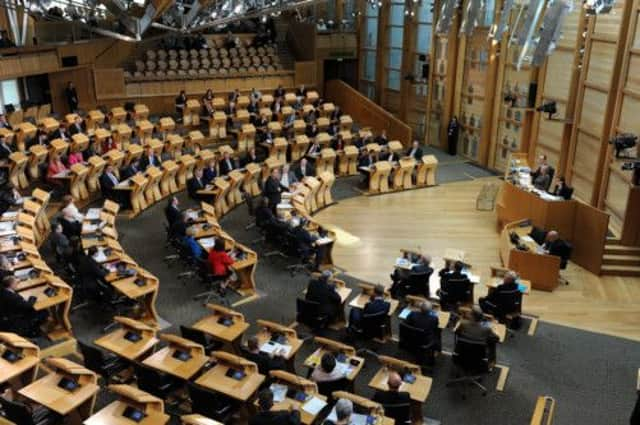Patrick Grady: £9bn shopping budget a powerful tool


Whilst much of this “shopping” usually goes on far from the public’s gaze, MSPs are currently discussing new legislation to guide this spending. We therefore have an important, and rare, opportunity to prompt our political representatives into thinking more deeply about the wider impacts of public procurement and how it could be used as a powerful economic tool to create a fair and more environmentally sustainable world.
SCIAF, the Scottish Catholic International Aid Fund, has been working with Stop Climate Chaos Scotland, the Scottish Council for Voluntary Organisations, the Scottish Fairtrade Forum and the STUC to call for ethical and sustainable principles to be at the heart of public spending, and for purchasing decisions not to be based purely on cost. Used wisely, our nation’s procurement policy can have a significant impact on lives at home and overseas. SCIAF is hoping to demonstrate public backing for this campaign by asking our supporters to lobby deputy first minister, Nicola Sturgeon, who has responsibility for the legislation.
Advertisement
Hide AdAdvertisement
Hide AdOur Climate Change Act is one of the most progressive in the world and this ambition is rightly highlighted as the kind of action other nations should follow. But if we are to meet our climate targets the government must take bold action. It is simply not acceptable, for instance, that chicken is flown from Thailand to be served in our schools because it is cheap. New rules could help to reduce Scotland’s emissions by ensuring publicly-purchased goods and services meet strict carbon-emissions criteria.
When Scotland became a Fairtrade nation earlier this year – only the second such country in the world – it reflected our increasing inclination to purchase fairly traded goods. This is something that Scotland should be proud of – the opportunity to sell products for a fair price helps millions in developing countries work their way out of poverty.
But we must now ask ourselves what it really means to be a Fairtrade nation. Mainstreaming the use of Fairtrade tea and coffee in our public organisations has been an important step forward but we must go further. New procurement rules should empower public bodies to prioritise fairly-traded products wherever these are available, especially when no locally-sourced alternatives exist.
The recent tragedies in Bangladesh also illustrate a clear need to drive up standards in global supply chains, not just within the garment industry but beyond. The British Medical Association has highlighted the unethical practices that take place in the manufacture of medical supplies such as surgical gloves and surgical instruments. Child labour is not unheard of in this industry and poorly-paid and overworked women and men are at risk of serious injury. It would be perverse if, in the production of equipment used by our NHS the health of workers overseas had been harmed in any way. Of course, Scottish public procurement alone won’t solve these problems but, at £9 billion a year, it is a powerful lever to encourage higher labour standards wherever possible.
Here at home, procurement has an important role to play too. Earning a fair wage allows workers to provide for themselves and their families and most importantly provides workers with dignity and stability. Public bodies could encourage payment of the living wage in the private sector by making it a condition of public contracts. And we can encourage other ethical behaviour from private companies. It is wholly wrong, for instance, that businesses which dodge paying taxes – denying the public purse billions, here and overseas – should be rewarded with public contracts.
Whilst some public bodies are showing the kind of progressive action that is possible, we need this to become the norm.
Scotland has a proud history of standing up against injustice and unjust practices around the world. The Procurement Bill is a clear opportunity for Scotland to continue this tradition and lead the world in ethical and responsible procurement. It must not be missed.
Patrick Grady is the advocacy manager for SCIAF